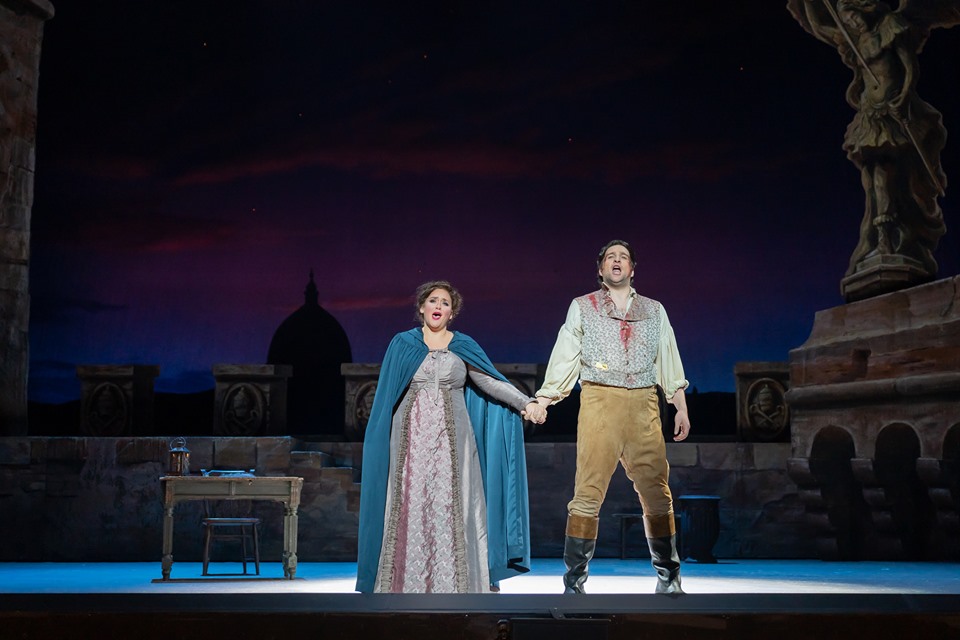Two Women

Two Women, mistreated.
Reading some of negative the reviews of San Francisco Opera’s premiere of Two Women (La Ciociara) lowered my expectations prior to seeing last week. Of those who had positive things to say about it, many are writers whose opinions I’m usually skeptical about to the point of dismissal. But I have to say I liked it. A lot.
Taken on its own terms, it handsomely delivers what was promised — an update on the verismo tradition based on the music of Puccini and Verdi. Yes, that “update” bleeds over into appropriation, especially when it comes to Puccini, and none of it comes across as original, but it is well done. Composer Marco Tutino egregiously makes use ofthe theme of “E lucevan le stelle” as if he wrote it himself, and two scenes are lifted almost completely intact from Boheme and Tosca, but for me the opera’s merits (a gripping storyline, two lovely arias, some excellent music) outweigh its lack of originality, though Tutino’s use of percussion is notably more effective and memorable than Puccini’s. And here’s what I think some folks are disregarding: it was never meant to be “original” or groundbreaking: it is, to borrow a description from Lisa Hirsch in the comment thread of this discussion about the opera, “a loving pastiche.”
Whether or not that’s an appropriate use of a major opera company’s time and resources is worthy of debate, but it’s not one I’m going to weigh in on here. For fans of verismo opera, and I count myself among them, Two Women is a treat, and its real strength is Tutino’s choice of material and his application of the verismo style to the world as it was after WWI. Tutino and Fabio Ceresa’s libretto isn’t great, but it’s serviceable to the cause and source material. Had they chosen to write an opera about circus troupes, nunneries, starving artists or poets from the French Revolution, the idea would be absurd and the results most likely risible, but Two Women captures the essence of Italian neorealism (which owes a debt to verismo) and the perils of life during wartime (especially for women) and puts it on the stage.
The storyline and elements of this production’s staging reminded me not only of its WWII setting — this opera could easily be set during the Bosnian War of the 90s (ignoring the Italian musical style, of course). Francesca Zambello’s direction is, as usual, heavy-handed (Michele’s appearance at end was sentimental crap), but conductor Nicola Luisotti led the orchestra with obvious dedication which bore gorgeous results. The cast, especially Anna Caterina Antonacci, Sarah Shafer, and Dimitri Pittas, is excellent, and the production design by Peter J. Davison, Mark McCullough, and S. Katy Tucker is extremely effective.
In terms of quality, Two Women is no Andrea Chenier or Tosca. However, given a choice between seeing another Cav/Pag or Il Trittico vs. Two Women? For me it would come down to the cast.





